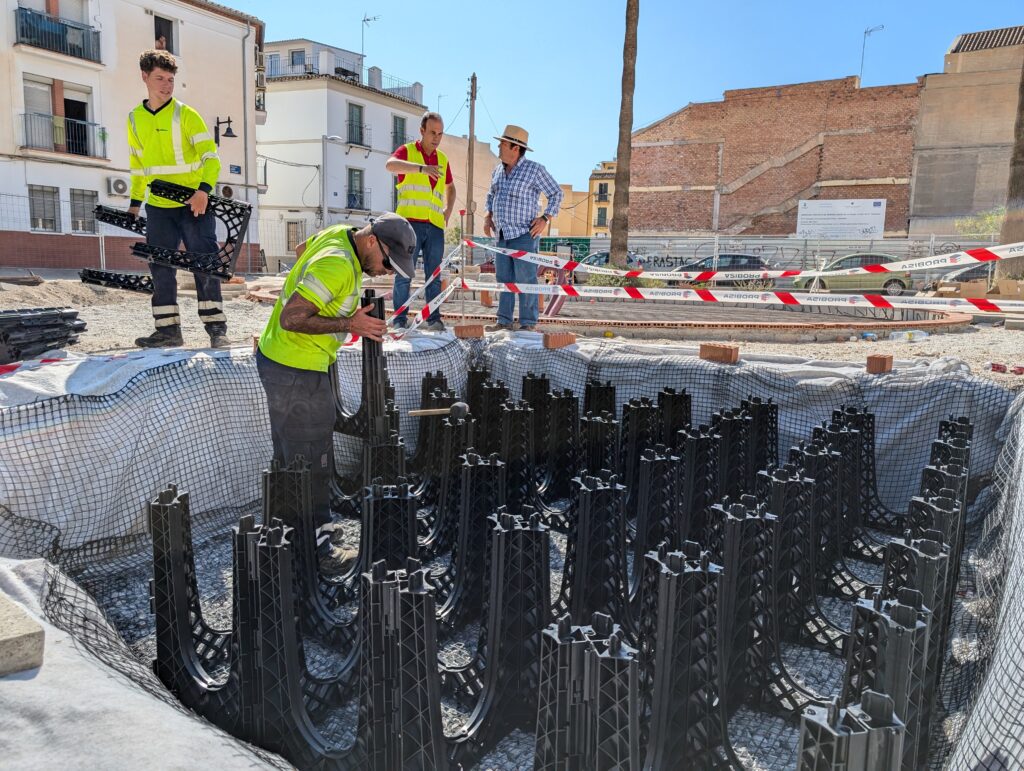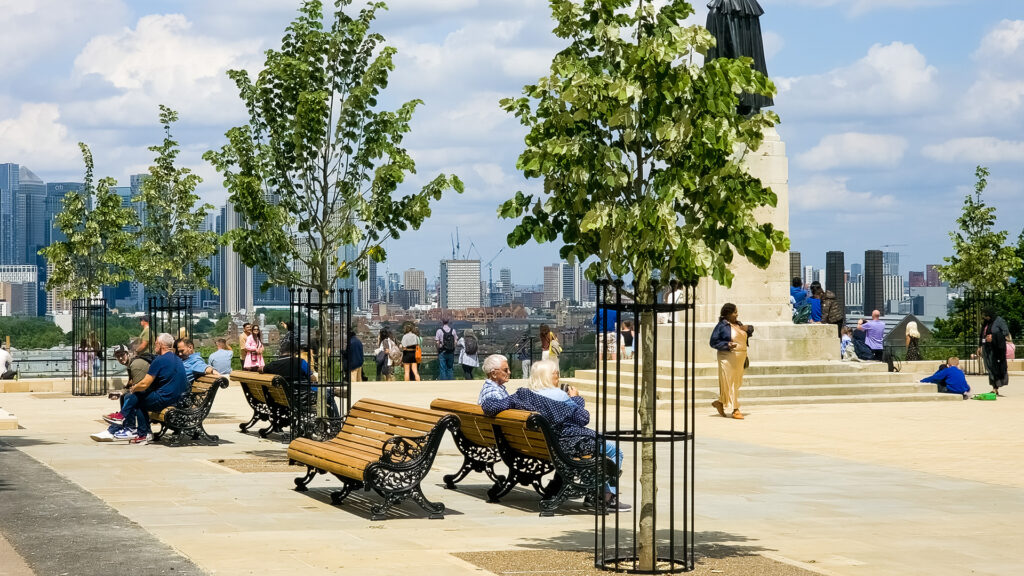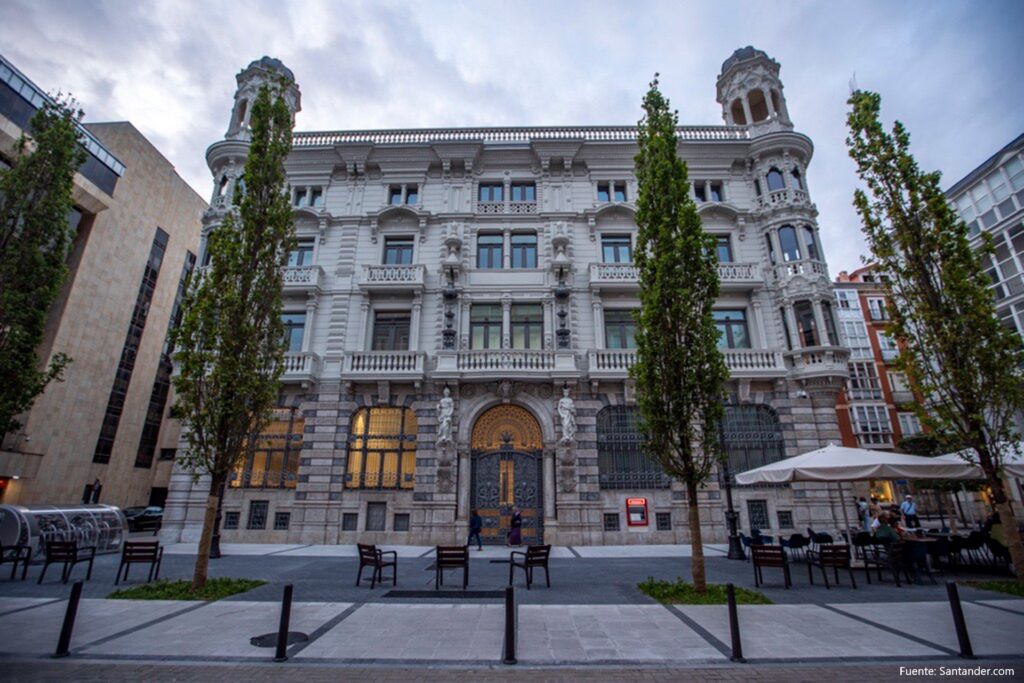Goldhawk Road
Hammersmith and Fulham Borough Council showed commendable foresight in recognising, at an early stage, the advantages of incorporating Sustainable Urban Drainage Systems (SUDS) in townscape regeneration schemes.
The Goldhawk Road scheme is the flagship demonstration of their commitment to the adoption of innovative and enlightened developments in environmental welfare. In the years ahead they, and their local residents, will be reaping the benefits of this integrated up-grade of a heavily used transport artery. The scheme designers have achieved improved traffic efficiency and safety plus a much more attractive public realm environment. Integral to the environment improvements and additional to the pavement widening (and creation of green ‘pocket parks’ in previously neglected small spaces – a Mayor of London initiative) has been the planting of a number of semi-mature trees. These will contribute to the absorption of pollutants and carbon as well as softening the visual aspects of urban streets.
To enable these trees to thrive and reach their valuable potential the scheme designers have adopted recent technology developments in tree pit engineering and SUDS provisions. The landscape architects, Robert Bray Associates, leading designers of SUDS in urban regeneration schemes, adopted the GreenBlue Urban StrataCell modular load bearing matrix which is capable of forming regular or irregular shaped tree pit configurations to maximise available root space without sacrificing essential traffic surfaces. The matrices ensure that the root medium is maintained without compaction so that it continues to contribute to the sustainability of the area run-off drainage.
Commenting on their approach to SUDS, Kevin Barton of Robert Bray Associates writes:- “The Goldhawk Road project integrates best practice for urban street tree planting with SuDS functionality. The StrataCell system enabled a large root zone to be constructed extending each tree pit beneath a totally hard-surfaced busy London high-street. The modular system allowed sufficient flexibility and on-site adaptation to negotiate the myriad of existing services to optimise the space available for future root growth.
When assessing the costs and benefits of this system it is worth bearing in mind that most of the materials and labour are associated with simply installing a best-practice tree pit in an urban environment. By combining the two functions, the only additional elements required to make it SuDS functioning are the kerb inlet, mesh overflow guard, Permavoid layer, perforated pipe and Controflow flow control chamber.”
Further augmenting the welfare of the tree root systems, GBU RootRain Precinct and GBU ArborVent irrigation and ventilation systems were incorporated in the GBU Avon tree grilles ensuring natural run-off drainage as well as an integrated and durable pavement surface.
Project
Location
Contractor
Landscape Architect
Hammersmith and Fulham Borough Council showed commendable foresight in recognising, at an early stage, the advantages of incorporating Sustainable Urban Drainage Systems (SUDS) in townscape regeneration schemes.
The Goldhawk Road scheme is the flagship demonstration of their commitment to the adoption of innovative and enlightened developments in environmental welfare. In the years ahead they, and their local residents, will be reaping the benefits of this integrated up-grade of a heavily used transport artery. The scheme designers have achieved improved traffic efficiency and safety plus a much more attractive public realm environment. Integral to the environment improvements and additional to the pavement widening (and creation of green ‘pocket parks’ in previously neglected small spaces – a Mayor of London initiative) has been the planting of a number of semi-mature trees. These will contribute to the absorption of pollutants and carbon as well as softening the visual aspects of urban streets.
To enable these trees to thrive and reach their valuable potential the scheme designers have adopted recent technology developments in tree pit engineering and SUDS provisions. The landscape architects, Robert Bray Associates, leading designers of SUDS in urban regeneration schemes, adopted the GreenBlue Urban StrataCell modular load bearing matrix which is capable of forming regular or irregular shaped tree pit configurations to maximise available root space without sacrificing essential traffic surfaces. The matrices ensure that the root medium is maintained without compaction so that it continues to contribute to the sustainability of the area run-off drainage.
Commenting on their approach to SUDS, Kevin Barton of Robert Bray Associates writes:- “The Goldhawk Road project integrates best practice for urban street tree planting with SuDS functionality. The StrataCell system enabled a large root zone to be constructed extending each tree pit beneath a totally hard-surfaced busy London high-street. The modular system allowed sufficient flexibility and on-site adaptation to negotiate the myriad of existing services to optimise the space available for future root growth.
When assessing the costs and benefits of this system it is worth bearing in mind that most of the materials and labour are associated with simply installing a best-practice tree pit in an urban environment. By combining the two functions, the only additional elements required to make it SuDS functioning are the kerb inlet, mesh overflow guard, Permavoid layer, perforated pipe and Controflow flow control chamber.”
Further augmenting the welfare of the tree root systems, GBU RootRain Precinct and GBU ArborVent irrigation and ventilation systems were incorporated in the GBU Avon tree grilles ensuring natural run-off drainage as well as an integrated and durable pavement surface.
Proyecto
Ubicación
Contratista
Paisajista
Project
Location
Contractor
Landscape Architect






